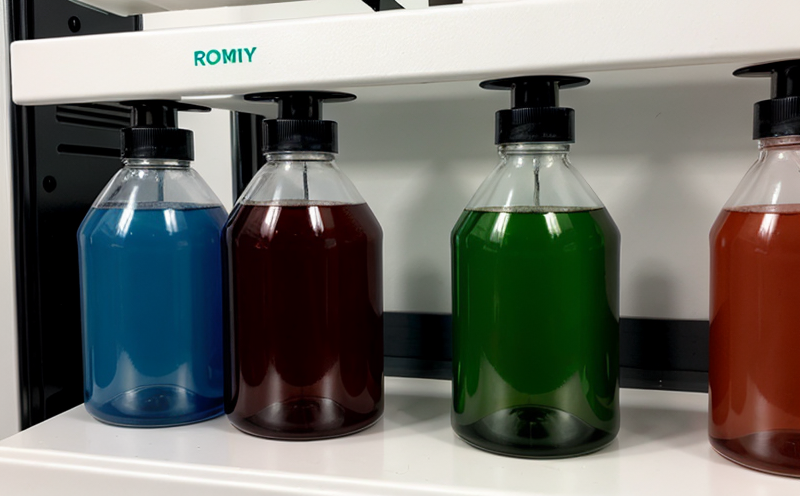Polymerization and Reactivity Testing
In chemical testing, polymerization and reactivity assessment are critical processes that determine the stability, performance, and safety of polymers. This service ensures that the materials used in various industries meet stringent quality standards by evaluating their ability to undergo controlled polymerization reactions or demonstrating their reactivity under specified conditions.
Polymerization is a fundamental reaction where monomers combine to form long-chain polymers. The success of this process hinges on the precise control over chain length, molecular weight distribution, and other physical properties. Reactivity testing complements these efforts by assessing how effectively a polymer interacts with its environment or other chemicals.
Our laboratory employs advanced analytical techniques tailored specifically for polymer science, including but not limited to nuclear magnetic resonance (NMR), Fourier transform infrared spectroscopy (FTIR), and gel permeation chromatography (GPC). These methods allow us to provide detailed insights into the chemical composition and structural integrity of polymers. For reactivity testing, we use a range of tests that simulate real-world conditions to evaluate how a polymer behaves when exposed to different stimuli.
Understanding the behavior of polymers under various stressors is essential for ensuring product quality and safety across multiple sectors such as pharmaceuticals, electronics, automotive manufacturing, and consumer goods. By offering comprehensive testing services in this area, our lab aims to support businesses in meeting regulatory requirements while enhancing their competitive edge.
| Industry Sector | Polymer Types Tested |
|---|---|
| Pharmaceuticals | Biopolymers, Synthetic Polymers |
| Electronics | Epoxy Resins, Silicones |
| Automotive Manufacturing | Polyurethanes, Polyolefins |
| Consumer Goods | Polystyrenes, Polycarbonates |
- Polymerization Kinetics Analysis
- Thermal Stability Assessment
- Environmental Degradation Testing
- Mechanical Property Evaluation
Why It Matters
Polymerization and reactivity testing are vital components in ensuring the safety, performance, and environmental compatibility of polymers used across diverse industries. These tests help manufacturers identify potential issues early on during development phases, thereby minimizing costly errors further down the line.
For pharmaceutical companies, understanding a polymer's interaction with biological systems can significantly influence drug delivery mechanisms or packaging effectiveness. In electronics manufacturing, accurate knowledge about thermal stability is crucial for designing durable circuit boards and connectors capable of operating reliably at high temperatures without degradation.
The automotive industry relies heavily on robust polymers that maintain their strength and flexibility over extended periods despite exposure to harsh environmental factors like extreme temperatures, UV radiation, and moisture. By leveraging our expertise in polymerization and reactivity testing, we empower these sectors to innovate confidently while adhering to strict regulatory frameworks.
Industry Applications
| Industry Sector | Polymerization and Reactivity Testing Importance |
|---|---|
| Pharmaceuticals | Evaluating biocompatibility and ensuring safety in medical devices. |
| Electronics | Assessing thermal stability for long-term reliability of electronic components. |
| Automotive Manufacturing | Determining durability and adaptability to various environmental conditions. |
| Consumer Goods | Ensuring product longevity through rigorous testing of packaging materials. |
Competitive Advantage and Market Impact
By offering state-of-the-art polymerization and reactivity testing services, our laboratory helps businesses gain a competitive edge by providing them with reliable data that supports informed decision-making processes. This enables companies to optimize their product designs, reduce development timescales, and enhance overall quality assurance practices.
The insights gained from these tests also contribute towards meeting increasingly stringent environmental regulations globally. Companies can demonstrate their commitment to sustainability initiatives by showcasing how they have optimized resource usage and reduced waste through improved polymer selection and formulation techniques.





